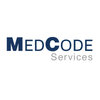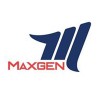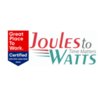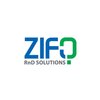Filter interviews by
Cogito Tech Medical Transcriptionist Interview Questions and Answers
Cogito Tech Medical Transcriptionist Interview Experiences
1 interview found
I applied via Walk-in and was interviewed in Jun 2022. There were 3 interview rounds.

(7 Questions)
- Q1. Difference between sign, symptoms & diagnosis?
- Q2. What are diagnostic procedures ?
- Q3. Drugs related to any specific disease?
- Q4. Drugs name that are present in market
- Q5. Difference between generic and brand drug?
- Q6. What are clinical phases?
- Q7. Pharmacovigilance definition and methods?
(1 Question)
- Q1. Little bit background questions and salary discussion and joining formalities.
Interview Preparation Tips
Prepare for rapid round questions.
Go through your CV/ RESUME PROPERLY (ONLY basic idea required.)
Skills evaluated in this interview
Top trending discussions






Interview questions from similar companies

Software Developer Interview Questions & Answers
Ksolves India Limitedposted on 20 May 2021
I applied via Referral and was interviewed in Nov 2020. There were 4 interview rounds.
Interview Questionnaire
2 Questions
- Q1. Basic programming concepts, OOPs & logical questions
- Q2. Particular technology related and basic array programming
Interview Preparation Tips

Software Engineer Interview Questions & Answers
Saama Technologiesposted on 15 Jul 2022
I applied via Referral and was interviewed before Jul 2021. There were 3 interview rounds.
If you are a fresher , then this is for you else almost no coding test for experienced candidates.
(1 Question)
- Q1. Javascript basics, Angular react general questions depends upon profile.
(1 Question)
- Q1. They asked general questions related to some hectic situation faced in previous company / project..
Interview Preparation Tips

I applied via Naukri.com and was interviewed before Apr 2021. There were 2 interview rounds.
(2 Questions)
- Q1. Basics of python, project related questions
- Q2. Basic SQL, few simple problem solving questions
(2 Questions)
- Q1. Interests, hobbies ,general HR questions
- Q2. Expected hike, salary, work timings preferred
Interview Preparation Tips

Software Engineer Interview Questions & Answers
Josh Technology Groupposted on 28 Jul 2021
I applied via Campus Placement and was interviewed before Jul 2020. There was 1 interview round.
Interview Questionnaire
2 Questions
- Q1. Check if binary tree is balanced or not.
- Ans.
Check if binary tree is balanced or not.
A balanced binary tree has the height of left and right subtrees differ by at most 1.
Recursively check the height of left and right subtrees and compare.
Use a helper function to calculate the height of a subtree.
Time complexity: O(nlogn) for a balanced tree, O(n^2) for a skewed tree.
- Q2. Detect loops in linked list.
- Ans.
Detect loops in a linked list.
Use two pointers, one moving at a faster pace than the other.
If there is a loop, the faster pointer will eventually catch up to the slower one.
To detect the start of the loop, reset one pointer to the head and move both pointers at the same pace.
Interview Preparation Tips
Skills evaluated in this interview

Interview Preparation Tips
Experience: It was nice set of mixed bag questions each challenging your brain to scratch more and find the trick.
Tips: Be calm in solving the questions, Practice few tricks to solve
work,time,distance,number series problem etc. quickly to help save the
time.
Duration: 20 minuntes minutes
Total Questions: 25
Round: Resume Shortlist
Experience: I think resume played a important role in selection processes.
Tips: Make it simple and HIGHLIGHT your good work and experiences.Interviewer don't have time to go through whole crap what we write so basically focus on highlighting your achievements and internships.
Round: Group Discussion
Experience: People are dying to take the opportunity and speak.You will be facing a fish market in few cases, rest it is calm and everyone is given a chance to put forward there point.
Tips: Generally u have to decide which side of the boat u want to be on.
Either go against the topic or in favor whichever you are more
comfortable with.
College Name: IIT ROORKEE

Interview Questionnaire
18 Questions
- Q1. Tell me about your yourself
- Ans.
I am a detail-oriented business analyst with experience in data analysis and process improvement.
I have a Bachelor's degree in Business Administration
I have worked with various stakeholders to identify business needs and requirements
I am proficient in SQL and Excel for data analysis
I have experience in process improvement and project management
I am a strong communicator and collaborator
- Q2. Tell us about your training and internships
- Ans.
I have completed a business analyst certification course and have interned at a software development company.
Completed a business analyst certification course from XYZ Institute
Interned at ABC Software Development Company for 6 months
Worked on requirement gathering, documentation and analysis for a project
Assisted senior business analysts in creating project plans and reports
- Q3. What is the role of Instrumentation Department? (my training)
- Ans.
The Instrumentation Department is responsible for designing, installing, and maintaining control systems and instruments used in industrial processes.
Designing and implementing control systems for industrial processes
Installing and maintaining instruments used in industrial processes
Ensuring accuracy and reliability of instruments and control systems
Collaborating with other departments to optimize processes and improve...
- Q4. Why do you want to join Affine Analytics?
- Ans.
I am excited to join Affine Analytics because of their reputation for delivering innovative solutions and their focus on employee growth.
Affine Analytics has a strong track record of delivering cutting-edge solutions to clients across industries.
I am impressed by the company's commitment to employee growth and development, as evidenced by their training and mentorship programs.
I am excited about the opportunity to work...
- Q5. Why Data anayltics? Why not a technical job in your field?
- Ans.
Data analytics allows me to use my technical skills to solve business problems and make data-driven decisions.
Data analytics helps me to identify patterns and trends in data that can be used to improve business processes.
It allows me to work with large datasets and use statistical methods to extract insights.
I can use my technical skills to develop and implement data models and algorithms.
Data analytics is a growing fi...
- Q6. If I keep two diodes in series will it work as a transistor? (EC branch)
- Ans.
No, two diodes in series cannot work as a transistor.
Transistors have three terminals while diodes have two.
Transistors can amplify signals while diodes cannot.
Transistors can be used as switches while diodes cannot.
Diodes in series will only increase the voltage drop.
Transistors have different modes of operation such as common emitter, common base, and common collector.
- Q7. What exactly have you accomplished with the drone? (my final year project)
- Ans.
I developed a drone that can detect and monitor forest fires.
Designed and built a drone with thermal imaging camera
Integrated machine learning algorithm to detect fire
Tested and validated the drone in a controlled forest environment
Presented the project at a national engineering conference
- Q8. How frequently do you play Badminton? (Hobby)
- Ans.
I play badminton twice a week as a hobby.
I enjoy playing badminton as a way to stay active and relieve stress.
I usually play with friends or family members at a local community center.
I have been playing badminton for several years and have improved my skills over time.
- Q9. Do you have any problem working in Bangalore?
- Ans.
No, I don't have any problem working in Bangalore.
I am familiar with the city and its culture
I have worked in Bangalore before and enjoyed my experience
I am open to new experiences and challenges
I am willing to adapt to the local environment and work culture
- Q10. Do you have any questions for us?
- Q11. Which football club do you follow? (My answer: Real Madrid) (Que based on hobby)
- Q12. Why is Real Madrid your favorite?
- Ans.
Real Madrid is my favorite because of their rich history, success, and style of play.
Real Madrid has won a record 13 Champions League titles, which is a testament to their success
Their style of play is attractive and entertaining to watch
The club has a rich history and has had some of the greatest players in football history, such as Cristiano Ronaldo and Zinedine Zidane
- Q13. Assume you are the CEO of Flipkart. Your board has decided to go App only. What factors would you consider before making your final decision. (You have the relevant data from your website of last 7 years ...
- Ans.
Factors to consider before going App only as CEO of Flipkart
Analyze the data from website and app to understand user behavior
Evaluate the impact on sales and revenue
Consider the potential loss of customers who prefer website over app
Assess the cost of developing and maintaining the app
Evaluate the competition and their strategies
Consider the impact on brand image and customer loyalty
Assess the feasibility of providing ...
- Q14. The Horse Puzzle
- Q15. 3 Ants triangle puzzle
- Q16. 3 Jars puzzle (Apple/Orange puzzle)
- Q17. I have two jars of 5 litres and 3 litres. How can I measure 4 litres? (Assume: Infinite supply of water and no third jar is present)
- Q18. A revolver with 2 bullets puzzle
Interview Preparation Tips
Experience: The first 10 questions were Data Interpretation type. There were around 4 to 5 logic questions. The rest were quantitative questions.
The questions were pretty basic.
Tips: The aim is to check the speed of your calculations.
Duration: 30 minutes
Total Questions: 23
Round: Group Discussion
Tips: Speak relevant points and you will be fine.
High proficiency in English is a must.
Duration: 10 minutes
Round: Puzzle Interview
Experience: The interview was great and lasted around 35-40 minutes. The interviewer gave ample amount of time to solve the questions.
To answer the questions was ofcourse important but approach to your final answer is very important as well. If you already know the answer but fail to explain the approach to the interviewer, you will get rejected.
Tips: Keep the interviewer in the loop and keep explaining him what you are thinking.
Fluent English is very important as well.
Round: HR Interview
Experience: The interviewers were very friendly and the interview lasted around 15 min.
Tips: Have one or two favorite subject/s from which you can answer any question thrown at you.
Be well versed about your final year project.
Do not put rubbish in your resume as they read the entire resume.
Skills: Enthusiasm, Projects, Proficiency In English, Logical Puzzles, Logical Thinking
College Name: NIT Surat
Funny Moments: As the HR interviewer is an alumni of my college, we had some chat about the college. This made the interview mood very light.

Interview Questionnaire
2 Questions
- Q1. Mostly puzzles and one case study
- Q2. They asked me questions about my interests and hobbies
Interview Preparation Tips
Experience: There were three sets of question paper. We were sitting according to our roll number then question paper with rough sheet were distributed and we were allowed 1 hour to finish that. There was no negative marking.
Tips: For aptitude practice data interpretation and data sufficiency
Duration: 1 hour
Total Questions: 30
Round: Group Discussion
Duration: 15 minutes
Round: Technical Interview
Tips: Practice puzzles and case study for this round
Round: HR Interview
Tips: Be yourself
College Name: NIT Rourkela

Interview Preparation Tips
Experience: this was a telephonic round : There I was asked basics of web development (e.g Session, hidden variable difference between POST and GET etc. ) and basics of PHP e.g global variables etc , little bit of mysql e.g joins , difference between left and right joins.
Round: Technical Interview
Experience: This was pretty much about interview rounds. I got the offer.
Skills: Core java, OOP, PHP
College Name: na

I applied via Campus Placement and was interviewed before Aug 2020. There were 4 interview rounds.
Interview Questionnaire
2 Questions
- Q1. It was mostly puzzles.
- Q2. One algo question invoving recursive function .
- Ans.
Recursive functions solve problems by breaking them down into smaller subproblems, often leading to elegant solutions.
A recursive function calls itself with modified parameters.
Base case is crucial to prevent infinite recursion.
Example: Factorial function - factorial(n) = n * factorial(n-1) with base case factorial(0) = 1.
Example: Fibonacci sequence - fib(n) = fib(n-1) + fib(n-2) with base cases fib(0) = 0, fib(1) = 1.
...
Interview Preparation Tips
Cogito Tech Interview FAQs
Tell us how to improve this page.
Cogito Tech Interviews By Designations
- Cogito Tech Data Annotation Engineer Interview Questions
- Cogito Tech Data Annotator Interview Questions
- Cogito Tech Korean Language Expert Interview Questions
- Cogito Tech Medical Transcriptionist Interview Questions
- Cogito Tech Data Analyst Interview Questions
- Cogito Tech Content Writer Interview Questions
- Cogito Tech Doctor Interview Questions
- Cogito Tech Freelancer Interview Questions
- Show more
Interview Questions from Similar Companies
Cogito Tech Medical Transcriptionist Reviews and Ratings
based on 2 reviews
Rating in categories
|
Data Annotator
55
salaries
| ₹1.7 L/yr - ₹3.5 L/yr |
|
Data Annotation Engineer
44
salaries
| ₹1.5 L/yr - ₹3.6 L/yr |
|
Team Lead
25
salaries
| ₹2 L/yr - ₹5 L/yr |
|
Data Analyst
22
salaries
| ₹1.8 L/yr - ₹4 L/yr |
|
Back Office Executive
22
salaries
| ₹1.6 L/yr - ₹3.6 L/yr |

Medcode

Cyfuture

Maxgen Technologies

JoulestoWatts Business Solutions
- Home >
- Interviews >
- Cogito Tech Interview Questions













